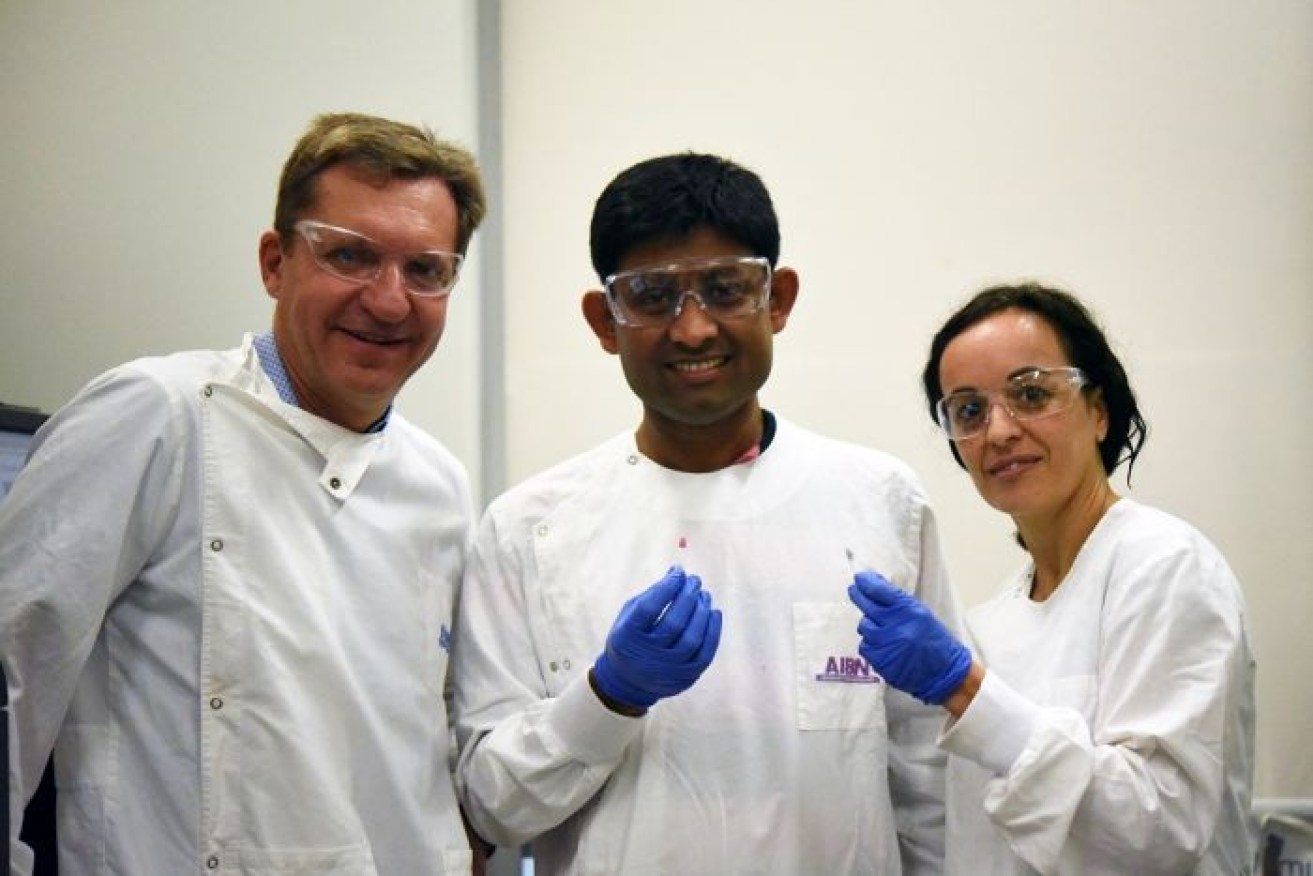Australian researchers discover unique cancer biomarker

Professor Matt Trau (left) with researchers Dr Abu Sina and Dr Laura Carrascosa. Photo: Australian Institute of Bioengineering and Nanotechnology, UQ
The discovery of a unique DNA signature common to multiple cancers could one day revolutionise the way we diagnose cancer, particularly in its early stages, Australian researchers say.
The cancer marker was identified by scientists at the University of Queensland who have also developed a simple test to detect it in blood and biopsy tissue.
Senior researcher Matt Trau said it had been difficult to find a “simple marker” that would distinguish cancer cells from healthy ones.
“We never thought this would be possible, because cancer is so complicated,” said Professor Trau, whose paper is published today in the journal Nature Communications.
“Even for breast cancer, there are a dozen types, so we thought there would be different tests for different types of cancer.”
The researchers were surprised to find the marker appeared in every type of breast cancer they examined, as well as in people with prostate cancer, colorectal cancer and lymphoma.
“That absolutely stunned us,” Professor Trau said.
“It seems to be a general feature for all cancer.”
Researchers relied on epigenetics
Cancer is caused by changes in DNA, which controls the way cells function.
“Usually, the approach to find cancer markers … is to look at the sequence of DNA,” Professor Trau said.
Taking a different tack, he and his colleagues looked instead at patterns of molecules called methyl groups, which decorate the DNA and control which genes are switched on and off.
The position of these molecules forms part of the epigenome — a set of instructions that controls how genes are expressed.
The researchers found that in healthy cells, methyl groups are spread out across the genome.
But on the genomes of cancer cells, methyl groups were positioned in intense clusters at specific locations.
“If you think of a cell as a hard-drive … the epigenome is sort of like the apps the cell is running at any one moment.
“It seems that to launch cancer, you have to run a series of genetic apps.”
Nanoparticles key to developing test for marker
The researchers developed a test which can detect cancer cells by picking up this epigenetic pattern in blood and biopsy tissue.
The development was made possible after they discovered that placing the cancerous DNA in a solution caused it to fold up into 3D structures.
It turns out these structures stick to gold, so when cancerous DNA is put into a solution with gold nanoparticles, it attaches to them and instantly changes the colour of solution.
“It’s just a simple blood test that you can see with a naked eye,” said Professor Trau.









